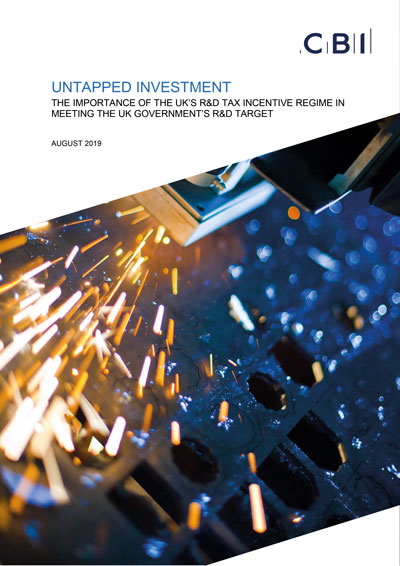
The Government should widen the scope of eligibility for the current research and development tax credit to help the UK meet its 2.4% R&D investment target and boost productivity, the CBI has urged.
The last government set a target for R&D spending to reach 2.4% of GDP by 2027. date. A report from the business group entitled Untapped Investment finds that, at the current pace of investment, the UK is set to miss the target by £19bn.
Making sure the R&D tax credit keeps pace with the changing nature of research and development, and the UK’s competitors, will help spur private sector investment to close this gap, it says.
“For the past ten years the UK’s productivity has been severely lagging behind its international peers,” said the CBI’s director of economic policy Annie Gascoyne. “With productivity proven to have a knock-on effect on pay and living standards, boosting it cannot be put on the backburner any longer.
“Part of the answer is to kick-start business investment, and one area of untapped investment is R&D,” she said. But she emphasised that for many businesses the significant initial capital costs are preventing them from spending more on research and development.
The report finds that the R&D tax credit provides a return of seven times as much in business investment as it costs the Government. In 2016/2017 R&D tax incentives cost the Government £3.4bn, supporting a return of £24.9bn of expenditure.
But the R&D landscape is changing, with increasing use of data and analytics and outsourcing of R&D activity to companies with specialist skills.
The report calls on the Government to widen the scope of eligibility for the R&D tax credit to include capital expenditure, data-driven innovation, outsourcing of R&D activities (where this is not already captured) and upskilling and retraining of staff.
It also urges a review of the availability of data on private sector R&D investment to help monitor and evaluate the effectiveness of Government policy, and calls for regular benchmarking of the R&D tax regime against international peers.
“The tax credit could be the motor to propel the economy forward,” said Ms Gascoyne. “But only if it keeps pace with the changing nature of R&D, so it must widen in scope if the UK is to remain a world leader in innovation.”
Ms Gascoyne added: “Improving the R&D tax credit is only one part of the story, and the CBI will be looking to the Government at the spending review to set out a road map of how to meet the 2.4% target.”

